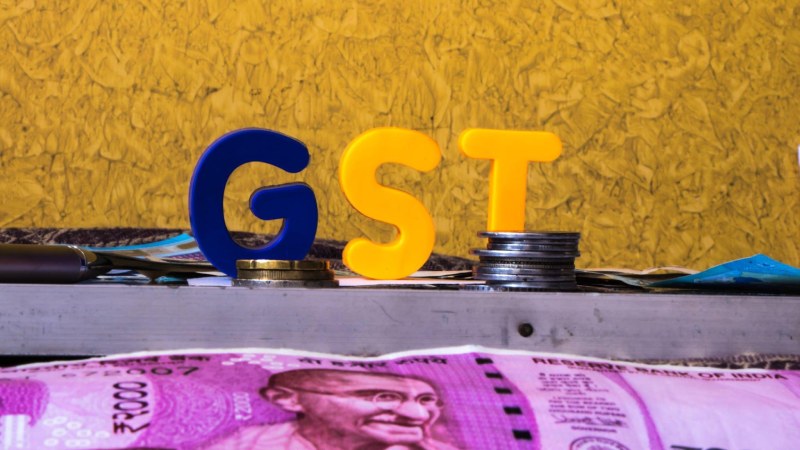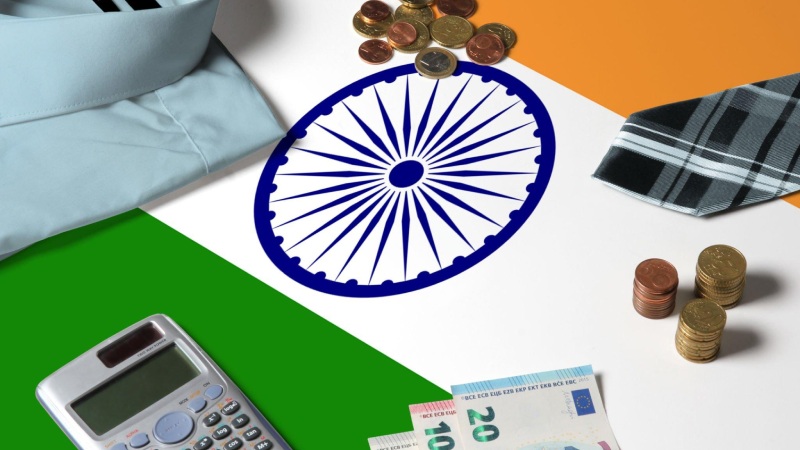Gst-Council-No-Gst-Will-Be-Charged-On-These-14-Items – Five years of India’s determined Goods and Services Tax (GST) bill will end on July 1, 2022. The 47th GST Council meeting, slated to take home in Chandigarh on June 28 and 29, 2022, also took place during the same week.
After several months, a big meeting was conducted that covered several important topics, including changes to Form GSTR-3B, changes to rates and the elimination of exemptions, inversion adjustments, and IT-related measures. The meeting was presided over by Smt. Nirmala Sitharaman in the presence of state ministers and the Minister of State for Finance, Shri Pankaj Chaudhary.
The FM added that the 48th GST Council meeting is scheduled to take place in Madurai, Tamil Nadu, during the first week of August 2022. The creation of GST Appellate Tribunals and the establishment of the GST rate for gambling establishments, including online casinos, will be on the agenda based on the GoM’s report.
Table of Contents
When sold loose, these foods do not have GST, FM confirms. Sitharaman
In her tweets, Sitharaman justified the GST of 5% on food items, claiming that the GST Council unanimously decided to impose the tax.
Finance Minister Nirmala Sitharaman published a list of food items that are free from GST on Tuesday, but only if they are sold loose and not packaged or labelled beforehand. Pulses/daal, wheat, rye, oats, maize, rice, atta/flour, suji/rawa, besan, puffed rice, and curd/lassi are a few examples these.
The minister clarified the new GST rates that went into effect on Monday in a series of tweets. The action follows the adjournment of Lok Sabha sessions on Tuesday due to opposition demonstrations against GST rates and price increases. In her tweets, Sitharaman justified the 5% GST imposed on food items, claiming that the GST Council unanimously decided to do so and that all states were present when the Group of Ministers brought up the topic of Rate Rationalisation on June 28, 2022. She said that taxes on such food items had been imposed in the past.
In the pre-GST era, food grain was a substantial source of revenue for the states.
By way of purchase tax, Punjab alone brought in more than Rs 2,000 crore on food grains. UP received Rs 700 billion.
When the GST was implemented, she explained, a GST rate of 5% was made applicable on branded cereals, pulses, and flour. Later, this was changed to only tax goods sold under registered trademarks or trademarks for which the provider had not waived an enforceable right.
However, she said that reputable manufacturers and brand owners immediately began to widely abuse this clause, which led to a considerable decline in the GST money generated by these goods.
States also saw the widespread tax avoidance, Sitharaman wrote in a tweet. Suppliers and trade groups who were paying taxes on branded products RESENTED this. To prevent this abuse, they appealed to the government urging them to implement GST consistently on all packaged goods.
The minister stated in his letter that the Fitment Committee, which was made up of officers from Gujarat, Rajasthan, West Bengal, Tamil Nadu, Bihar, Uttar Pradesh, Karnataka, and other states, had also looked into this matter over several meetings and had made recommendations for altering the procedures to prevent abuse.
“The GST Council made its decision in this context during its 47th meeting. With effect from July 18, 2022, only the procedures for applying the GST to these commodities were altered. The GST’s coverage remained the same, except for a few items, the spokeswoman stated.
The minister stated, “It has been stipulated that GST on these items shall apply when delivered in “pre-packaged and labelled” commodities attracting the Legal Metrology Act’s requirements.
Amendments To GSTR-3B Will Be Accepted

Changes to GSTR-3B, the monthly GST return for taxpayers, were approved by the GST Council. The new GST return method would be discontinued since it is no longer necessary, the Council stated clearly. Additionally, for better compliance and ease of observation. It allowed auto-population of the majority of details in Form GSTR-3B and yearly returns in Form GSTR-9. A complete change proposal for GSTR-3B will be made available to the public for comment.
Who Will Pay Tax Following The Government’s New Regulation On Residential Properties? 18% GST On Rent Explained
Until recently, residential buildings utilized for businesses, such as offices and stores, were subject to the GST. But in the future, the tax must be paid on any rental of real estate.
Numerous changes to the taxation system that had been previously proposed have been approved at the 47th GST Council meeting on Friday. Currently, one proposal would require tenants to pay an additional 18% GST on their housing rent. Until recently, residential buildings utilized for businesses, such as offices and stores, were subject to the GST. But in the future, the rent must be taxed.
However, the tax, which will be enforced starting on July 18, is not mandatory for all tenants to pay. Tenants who are GST-registered will be subject to taxation under the new regulations. According to a tweet from PIB, “renting of housing unit taxable only when it is rented to a business entity.”
No GST if rented to an individual for personal use. No GST even if the owner or a business partner leases the house for personal use.
GST On Rent Is Described
As was already stated, not every landlord is required to pay the tax. Residential properties would be subject to GST under the new government’s regulations if they are leased or rented by a GST-registered person or company.
Given that they are not registered on the GST network, the majority of the salaried class would be exempt. The Narendra Modi administration has established the annual threshold limit for GST registration at Rs. 20 lacks for service providers and Rs. 40 lacks for suppliers of products.
The GST-registered renter, not the owner, will be responsible for paying the tax under the new regulation. The recipient of the commodity or service. Not the provider of the service, is responsible for paying the tax under this so-called “reverse charge” system.
Who Is Going To Pay, And Who Isn’t

According to the rule, salaried individuals paying rent for residential units won’t pay any GST. However, if a GST-registered person leases a home or flat and uses it for business purposes. They must pay 18% GST on the rent they pay the owner.
The renter won’t be subject to tax laws if the landlord and the tenant are not registered under GST. Additionally, the transaction will not contain a GST clause if the landlord is GST registered. But the tenant is not on the list.
Gst Council To Discuss Modifying Tax Rates On 14 Items And Making Compliance Easier
According to a CNBC-TV18 report, the GST Council, which will convene in Chandigarh the next week, would probably talk about altering the tax rates on 14 products that the Fitment Committee has advised. It was previously reported that the Council had asked states for their opinions before raising tariffs on 143 different products, including walnuts, chewing gum, chocolate, handbags, perfumes, and deodorants.
The Fitment Committee, which consists of revenue officials from the Centre and States. Approved rate vicissitudes for 22 services and then refused rate changes for 113 items. It postponed rate changes for two commodities.
According to an account by CNBC-TV18 citing sources, the GST Council is expected to exempt the necessity for submitting reimbursement claims by permitting the two years between March 1, 2020, and February 28, 2022, in light of the disruption caused by the COVID-19 epidemic. Ignoring the two-year COVID-19 term may also enable tax authorities to dispute incorrect reimbursements.
Conclusion
Finance Minister Nirmala Sitharaman published a list of food items that are free from GST on Tuesday. But only if they are sold loose and not packaged or labelled beforehand.
Pulses/daal, wheat, rye, oats, maize, rice, atta/flour, suji/rawa, besan, puffed rice, and curd/lassi are a few examples these.
The minister detailed the new GST rates that went into effect in a series of tweets. The action follows the adjournment of Lok Sabha sessions on Tuesday due to opposition demonstrations against GST rates and price increases.

